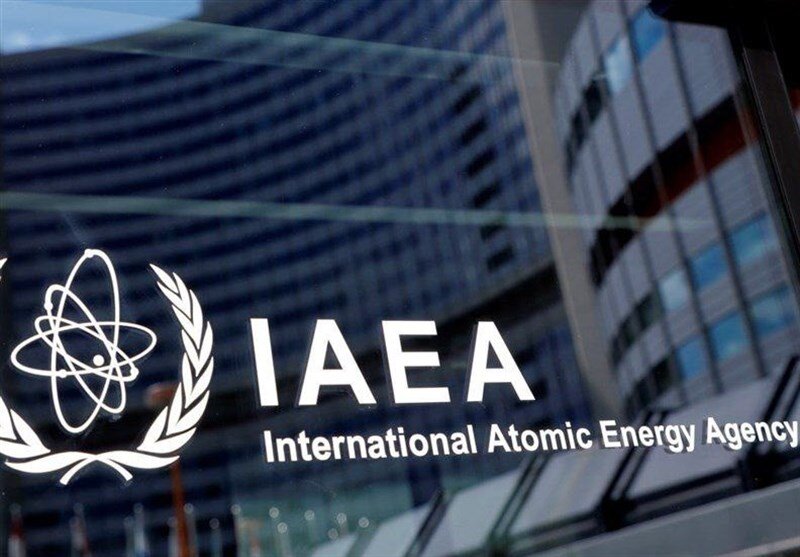Israeli regime ‘indignant’ over futile attempts at IAEA against Tehran

TEHRAN- A Hebrew-language media outlet explicitly expressed dissatisfaction and disappointment that all of Israel’s efforts against Iran at the recent IAEA’s meeting did not bear fruit.
According to the Hebrew news website News1, in an article published on Saturday evening, Sima Shine and Eldad Shavit, the authors of the article, stated that the three-month meeting of the International Atomic Energy Agency’s Board of Governors had concluded without any decisions being made against Iran.
The two writers claimed that this decision was made despite the International Atomic Energy Agency releasing a report signed by Rafael Grossi, the Director General of the International Atomic Energy Agency, which highlighted Iran’s concerning behavior towards the Agency.
In another part of this article, it is alleged that even though the United States and the European signatories of the JCPOA, namely France, Britain, and Germany, strongly reacted to the Agency’s report, they emphasized during the Board of Governors meeting that if Iran cooperates with the IAEA in the next three months, there will be no need for a different approach towards Iran by the Agency and the Board of Governors.
These two Zionist analysts, who are considered senior analysts at the research center affiliated with Tel Aviv University, admitted that the main reason for the United States and European countries refraining from taking action against Iran at the Agency’s Board of Governors meeting is due to the position and power that Iran has created for itself.
In short, they fear Iran’s reaction, especially as the conflict in Gaza continues and the U.S. presidential elections are approaching.
The IAEA, under Grossi’s leadership, adopts an ineffective approach towards Iran, fostering a sense of mistrust between Tehran and the UN nuclear watchdog.
In a recent report by The Associated Press, the head of the UN’s nuclear watchdog sounded the alarm over Iran’s alleged lack of transparency regarding its nuclear program.
Speaking at the prestigious World Governments Summit in Dubai, Grossi emphasized that Iran’s disclosures are insufficient, marking a concerning trend in the global effort to monitor nuclear activities.
Iran is “presenting a face which is not entirely transparent when it comes to its nuclear activities. Of course, this increases dangers," Grossi added.
Grossi's remarks followed a significant statement from Ali Akbar Salehi, the former head of Iran's Atomic Energy Organization, who asserted Iran's capability in nuclear endeavors. Salehi's words, coupled with Grossi's concerns, underscore a critical juncture in international nuclear diplomacy.
Grossi's assertions come at a time when Iran, a signatory to the Treaty on the Non-Proliferation of Nuclear Weapons, has committed to granting the International Atomic Energy Agency (IAEA) access to its nuclear facilities, a move aimed at verifying the peaceful nature of its program.
The Permanent Mission of Iran to the United Nations Office and other international organizations in Vienna urged the UN nuclear watchdog to maintain objectivity in its reports related to Iran’s nuclear activities.
The request was made in an explanation note dated March 5, 2024, that was sent to the IAEA and made public to the media on Tuesday.
“The Islamic Republic of Iran rightfully expects that the Agency conducts its reporting on verification activities in Iran based on the principles of impartiality, professionalism, and objectivity,” said the note in response to claims in Grossi’s reports that Tehran had not cooperated with the IAEA on verification issues.
It stated that Iran “has done its utmost to enable the Agency to effectively carry out its verification activities in Iran” and that the nation has completely fulfilled all its commitments, including those under the Comprehensive Safeguards Agreement.
It also censured Grossi for failing to appropriately segregate topics in the two reports that were presented to the Board of Governors. These reports included topics about the JCPOA and NPT Safeguards.
“As an example, verification and monitoring activities related to the manufacture of centrifuges rotor tubes and bellows, which are defined in the scope of the JCPOA, should not be reported under the NPT Safeguards Agreement Agenda Item,” it stressed.
Tehran’s UN mission stated that Iran stopped voluntary transparent measures in response to the U.S. illegal pullout from the JCPOA in May 2018 and a failure by the European signatories to the deal to honor their end of the bargain.
